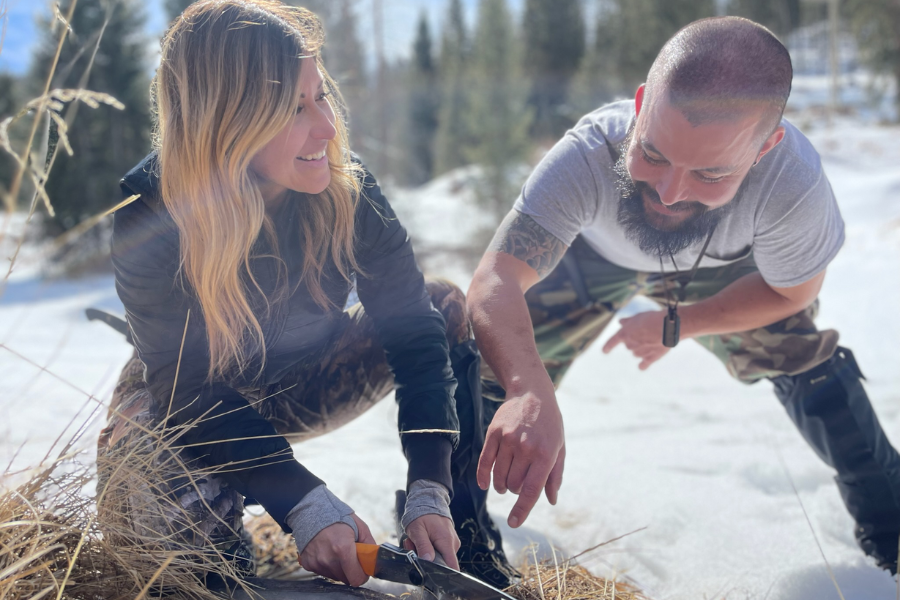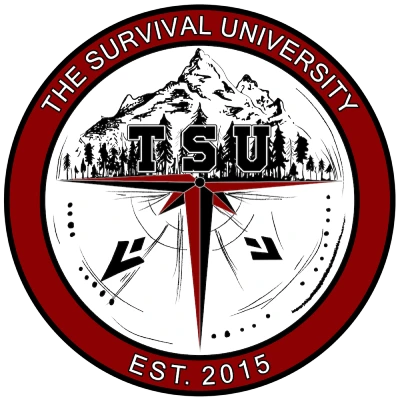Cart
General Survival Tips

General Survival Tips
Survival is simple to talk about and hard to live through. It is not about looking cool or building the perfect kit. It is about staying calm, solving one problem at a time, and refusing to let fear take over. The tips below are not theory. They are reminders built from experience, tested in real conditions when the stakes feel very real.
Stay Calm
When people panic, they lose their ability to think clearly. Your breathing speeds up, your vision narrows, and you make small mistakes that turn into big ones. The moment you realize you are in trouble, stop. Take three slow breaths. Look around. Think before you move. The calmest person in a bad situation is usually the one who makes it home.
Prioritize Your Needs
Survival comes down to order. You can live three minutes without air, three hours without shelter in bad weather, three days without water, and three weeks without food. That order never changes. Focus on what matters most right now. Keep it simple. Shelter keeps you alive long enough to find water. Water keeps you alive long enough to find food. Get that order wrong and you will struggle no matter how good your gear is.
Shelter
Shelter is not about comfort. It is about controlling your environment before it controls you. Wind, rain, and cold will take your energy faster than hunger ever will. Build something that blocks wind first, then insulates. Do not waste time chasing perfection. Even a quick lean-to or debris shelter can save your life. If you want to learn the basics, check out our Survival for Beginners Training.
Water
Dehydration does not start when you feel thirsty. It starts hours before. Learn to find water before you desperately need it. Moving water is usually better than still, but nothing in the wild is guaranteed clean. Boil it, filter it, or purify it every time. Carry a backup method in case your filter breaks. Water is life, but untreated water can end it. You can learn the field methods we use in our Outdoor Survival Basics classes.
Food
Food matters less than most people think in short-term survival, but knowing how to find it keeps your mind steady. Learn the wild edibles that grow in your area. Practice identifying them before you ever need them. A handful of wild berries can feel like a feast when you have gone without. Hunting and trapping take time and energy, so balance the return with the effort. If you are curious about wild foods, see our plant and ethnobotany courses.
Fire
Fire is life. It gives warmth, light, security, and morale. But it also humbles you. Wet wood and cold fingers have broken more people than hunger ever did. Gather more tinder and kindling than you think you will need. Double it again before you strike a spark. Practice with different methods until you can start a fire under stress. It is one of the most valuable skills you will ever learn.
First Aid
Injuries happen fast and often. A simple cut or twisted ankle can change everything. Know how to clean a wound, stop bleeding, and recognize shock. Do not rely on what you remember from a YouTube video. Take real medical training. It is not about being a hero. It is about being useful when someone is hurt. If you are serious about that, look into our Wilderness First Responder course.
Navigation
Getting lost is easier than you think, even for experienced outdoorsmen. Phones die, batteries freeze, and landmarks disappear in bad light. Learn to use a compass and map until it feels natural. Keep your awareness sharp and check your direction often. The best way to stay found is to never get lost. You can practice these skills during our Land Navigation training.
Stay Positive
Negativity spreads like fire. A hopeless person will drain everyone around them. Positivity is not pretending everything is fine; it is focusing on what you can do next. When things fall apart, humor and gratitude are powerful tools. They remind you that you are still in control of your mind even when everything else feels uncertain.
Keep Learning
Real preparedness never ends. Every trip outside is a chance to test yourself and refine your skills. Reading about survival is fine, but hands-on experience is what changes you. Practice fire building in bad weather. Navigate without GPS. Spend a night using only what you can carry. When you train your mind and body together, survival becomes less about fear and more about understanding.
If you are ready to take that next step, join our 26 Day Immersion Course and experience what it feels like to truly know you can handle yourself when things go wrong.
